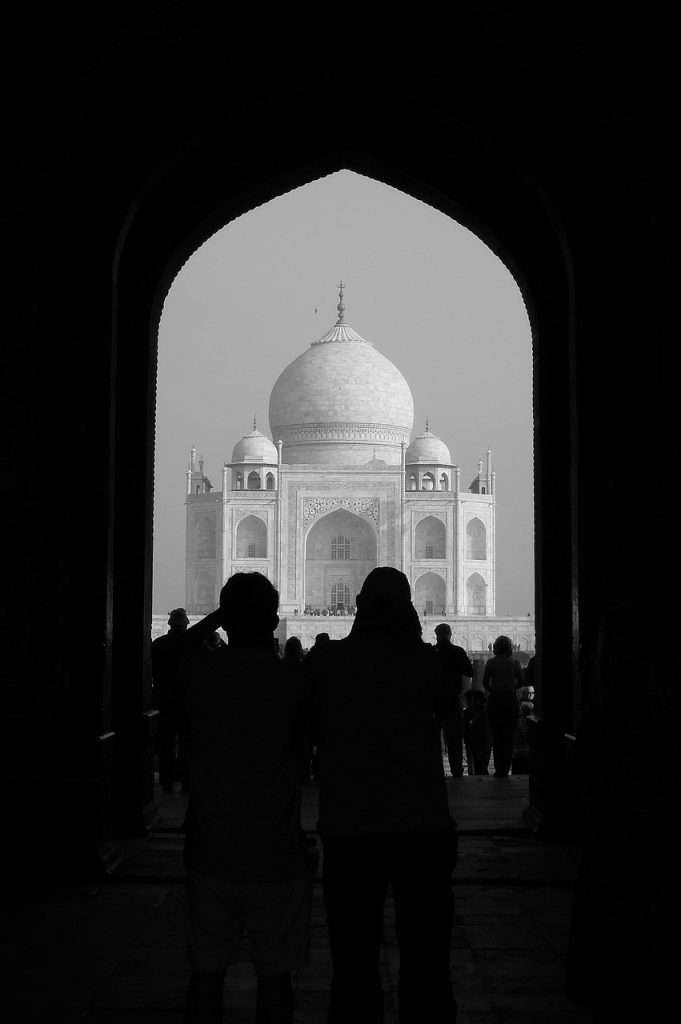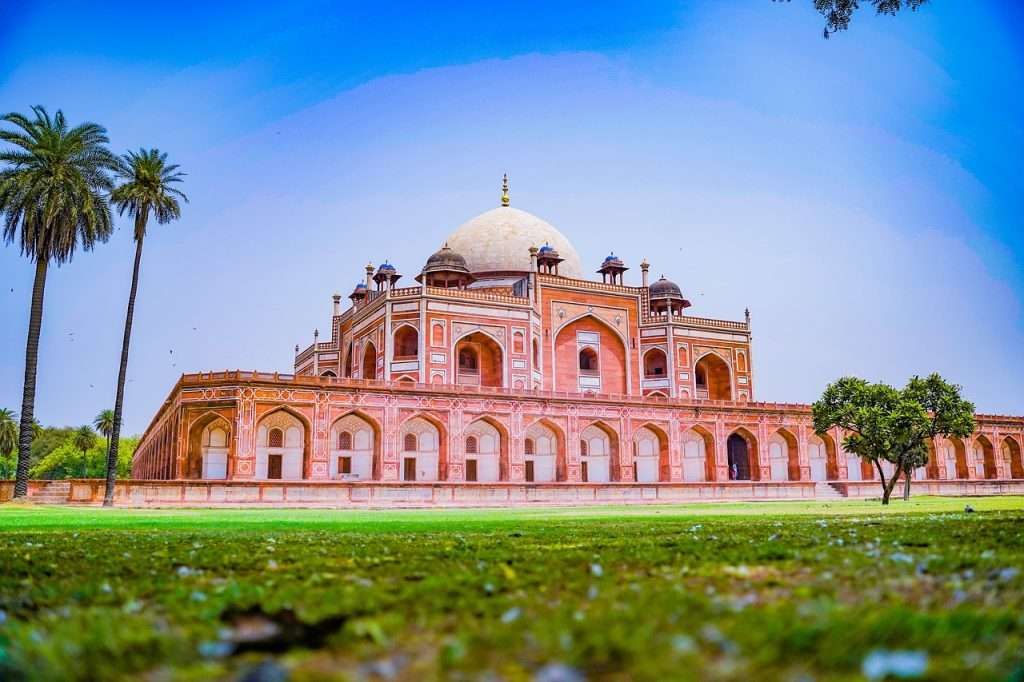Narendra Modi’s approach to history has been heavily influenced by his understanding of India’s past. He has been vocal about his admiration for Hinduism and his belief that India’s history should be viewed through a Hindu lens. He has often been criticized for his approach to history. Many have accused him and his government of trying to rewrite India’s past and erase diverse narratives. Recently, Modi’s government has come under fire for its changes to the National Council of Educational Research and Training (NCERT) curriculum. This article aims to explore the reasons behind Modi’s fear of India’s textbook history and the impact of his approach on India’s education system and democracy.
How Modi’s Government Distorts Indian History
The Indian government under the leadership of Narendra Modi has been accused of distorting the country’s history by pushing certain events and groups to the margins in school textbooks since Modi’s government came to power in 2014. Since then, it has made several changes to the NCERT curriculum. Many also feel that the changes made by the government have a detrimental impact on the education system in India, accused of promoting Hindutva, a right-wing Hindu nationalist ideology.
Secular India and the Nature of its so-called Secularism
Critics of the changes made by Modi’s government argue that the new textbooks have a biased and one-sided approach to history. For instance, in 2016, it was reported that the government had ordered the removal of several references to India’s first Prime Minister, Jawaharlal Nehru, and other leaders from the NCERT textbooks. The government claimed that the changes were made to ensure that the textbooks reflected “Indian culture, knowledge, and ethos.” However, the removal of certain references and perspectives from textbooks could limit students’ exposure to diverse narratives and historical perspectives.
Recent revelations have shown that several pages on the Mughal rulers and Delhi Sultanate have been deleted from textbooks of different classes. This deletion means that students will no longer learn about the milestones and achievements of some of India’s most important rulers, including their contributions to the cultural landscape of India.
This move is in line with the ideological agenda of Modi’s Bharatiya Janata Party (BJP), which seeks to portray India as a historically Hindu-only land. The BJP believes that any other presence, especially of Muslims, is to be seen as an intrusion and pollution – a distortion of the ideal original past that the BJP wants to persuade Indians was the reality. The BJP’s approach is evident in its renaming of Muslim-sounding towns and roads, with the historic city of Allahabad now being called Prayagraj, Aurangabad renamed Chhatrapati Sambhaji Nagar, and Osmanabad renamed Dharashiv.

The marginalization of Mughals and Muslims in textbooks reflects what Muslims face in Modi’s India. The recent textbook revisions are part of a cultural genocide aimed at erasing the contributions of Indian Muslims to the country’s history. This cultural genocide can also be seen in the 1992 demolition of the Babri Mosque in Ayodhya, as well as the designation of the Gyanvapi Mosque in Varanasi and the Shahi Mosque in Mathura as the next targets for demolition.
The BJP’s war on history does not end with erasing Muslim history. The truth about caste and its legacy of exclusion and untouchability is also being whitewashed by textbook revisionists. The BJP wishes for future generations to believe in the fantasy of a conflict-free India.
However, the truth about India’s history is fraught with conflict. Parts of history books that detail Nathuram Godse’s Hindu extremist background, the man who assassinated Mahatma Gandhi in 1948, have also been removed. Godse was a member of a Hindu supremacist network led by the Rashtriya Swayamsevak Sangh, the BJP’s ideological pillar. He assassinated Gandhi because Gandhi insisted on a secular India.
Sections of textbooks on the 2002 mass killings of Muslims in Gujarat, which occurred during Modi’s tenure as chief minister, have also been removed. Similarly, examples of gender-based discrimination have been removed, portraying India as a society in which no social group has ever faced discrimination on any basis.
Is the RSS a Threat to India’s Secularism?
The BJP’s approach to history is about more than just controlling it and painting it in Hindu colors. It is also about the future, a dark and undemocratic future that the BJP is dragging India into. The BJP wants a strong state and obedient masses, with citizens being accountable to the state instead of holding the state accountable. The removal of references to social and political protest movements defending democratic rights from textbooks is evidence of this.
Officially, the textbooks were edited to reduce the learning load for students. Still, a closer look at the removed parts shows a clear pattern. The BJP’s distortion of Indian history through the manipulation of textbooks will have serious consequences for future generations. It will leave them ignorant of crucial aspects of Indian history, perpetuating false narratives and erasing the contributions of minorities to Indian society. This must be condemned, and the truth about India’s history must be preserved for future generations.
The danger of erasing diverse histories
The current government in India, under the leadership of Narendra Modi and the Bharatiya Janata Party (BJP), has been accused of promoting a historically Hindu-only land and distorting the country’s diverse history. The BJP and its ideological fountainhead, the Rashtriya Swayamsevak Sangh (RSS), have been known to portray other religions, especially Muslims, as intruders and polluters of India’s history and culture.
Such a narrow view of history is not only divisive but also dangerous. India’s history is complex and multifaceted, shaped by various cultures, religions, and people. Erasing certain narratives or perspectives from the historical record could limit our understanding of the past and lead to a distorted view of India’s history. This approach goes against the very essence of history – to learn from the past and to create a more inclusive and nuanced understanding of it.

Furthermore, the BJP and RSS’s philosophy against every other religion is a cause for concern. It promotes an exclusionary and discriminatory approach, going against the core values of democracy and secularism. India is a diverse nation, and all religions and cultures have contributed to its rich history and heritage. Ignoring or erasing these contributions only leads to a fragmented and incomplete understanding of India’s past.
In conclusion, it is crucial to preserve and acknowledge the diversity and complexity of India’s history. The erasure of certain narratives or perspectives, as promoted by the current government, poses a threat to this. A more inclusive and nuanced approach to history is necessary to create a shared understanding of India’s past and to build a better future for all its citizens.
Modi’s Fear of Dissent and Opposition
Modi’s government has been characterized by a deep-seated fear of dissent and opposition. This fear has resulted in a crackdown on journalists, academics, and activists who have dared to criticize his policies or approach to history. By attempting to silence these dissenting voices, Modi is seeking to control the narrative and prevent any challenges to his version of history. This is a concerning trend that raises questions about the government’s commitment to freedom of speech and the democratic principles that India is founded upon. A healthy democracy requires the free exchange of ideas and the ability to engage in constructive criticism and debate, and it is essential that the Indian government upholds these principles if it is to maintain the trust of its citizens. The importance of a nuanced understanding of history:
How Sikkim became a part of India?
A nuanced understanding of history is essential for any society to learn from its past and move forward. It allows us to understand the complexity of historical events and learn from the mistakes of the past. Modi’s approach to history could limit India’s ability to learn from its past and move forward as a society. It is essential to have a more inclusive approach to history that acknowledges and embraces diverse narratives and perspectives.
Modi’s fear of history and his attempt to rewrite India’s past pose a significant threat to India’s education system and democracy. Erasing certain narratives or perspectives from the historical record could limit our understanding of the past and lead to a distorted view of India’s history. It is essential to have a more inclusive and nuanced approach to history that acknowledges and embraces diverse narratives and perspectives. Only by doing so can India learn from its past and move forward as a society.
সম্পর্কিত আর্টিকেল
কোন আর্টিকেল খুঁজছেন?
আমাদের অনুসরণ করুন
এক নজরে এই আর্টিকেলে যেসব বিষয় আলোচনা করা হয়েছে…
সাম্প্রতিক আর্টিকেল
কেন ইসরায়েল ইরানে আক্রমণ করেছিল তার প্রকৃত কারণ
কেন ইসরায়েল ইরানে আক্রমণ করেছিল? আন্তর্জাতিক বিচারের হাত থেকে বাঁচতে, গাজার নিপীড়ন থেকে দৃষ্টি সরাতে ও ইহুদি আধিপত্য জাহিরের হতাশাজনক প্রচেষ্টা।
সিরিয়ার ওপর আরোপিত নিষেধাজ্ঞা প্রত্যাহার যুক্তরাষ্ট্রেরঃ নতুন কূটনৈতিক অধ্যায়ের সূচনা
গত ১৩ মে, যুক্তরাষ্ট্রের প্রেসিডেন্ট ডোনাল্ড ট্রাম্প সৌদি আরবের রিয়াদে এক বিনিয়োগ সম্মেলনে সিরিয়ার ওপর আরোপিত নিষেধাজ্ঞা প্রত্যাহার করার ঘোষণা দেন।
বাংলাদেশ আওয়ামী লীগের নিবন্ধন স্থগিত করল নির্বাচন কমিশনঃ রাজনৈতিক প্রভাব ও ভবিষ্যৎ পথ
গত ১২ই মে, ২০২৫ সাবেক শাসক দল আওয়ামী লীগের সব কার্যক্রম নিষিদ্ধ করে সরকারের প্রজ্ঞাপন জারির পর এবার আওয়ামী লীগের নিবন্ধন স্থগিত করল নির্বাচন কমিশন।
পিকেকে-র বিলুপ্তি: তুরস্কের জন্য সুযোগ নাকি কুর্দিদের জন্য নতুন সংকট?
পিকেকে-র বিলুপ্তির ঘোষণা: তুরস্কের সামনে শান্তি প্রতিষ্ঠার সুযোগ, নাকি কুর্দিদের জন্য অধিকার হারানোর নতুন ঝুঁকি?
অপারেশন বুনিয়ান-উন-মারসুসঃ ভারতে পাকিস্তানের পাল্টা হামলা
পাকিস্তান ভারতের বিরুদ্ধে "অপারেশন বুনিয়ান-উন-মারসুস" নামে ব্যাপক পাল্টা হামলা শুরু করে। এই অভিযানের নামটির অর্থ "গলিত সীসায় নির্মিত অভেদ্য প্রাচীর"।







